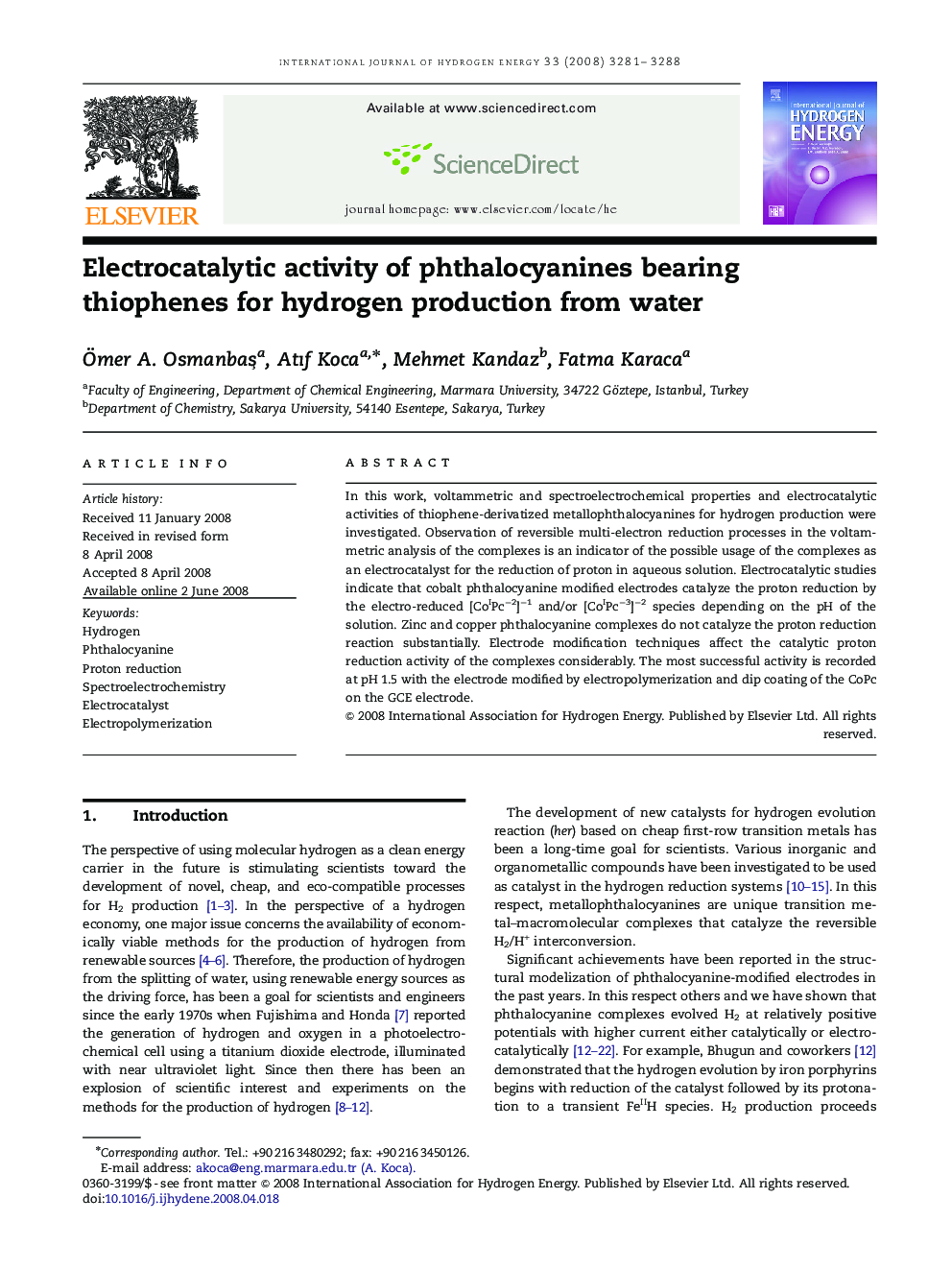| Article ID | Journal | Published Year | Pages | File Type |
|---|---|---|---|---|
| 1279370 | International Journal of Hydrogen Energy | 2008 | 8 Pages |
In this work, voltammetric and spectroelectrochemical properties and electrocatalytic activities of thiophene-derivatized metallophthalocyanines for hydrogen production were investigated. Observation of reversible multi-electron reduction processes in the voltammetric analysis of the complexes is an indicator of the possible usage of the complexes as an electrocatalyst for the reduction of proton in aqueous solution. Electrocatalytic studies indicate that cobalt phthalocyanine modified electrodes catalyze the proton reduction by the electro-reduced [CoIPc−2]−1 and/or [CoIPc−3]−2 species depending on the pH of the solution. Zinc and copper phthalocyanine complexes do not catalyze the proton reduction reaction substantially. Electrode modification techniques affect the catalytic proton reduction activity of the complexes considerably. The most successful activity is recorded at pH 1.5 with the electrode modified by electropolymerization and dip coating of the CoPc on the GCE electrode.
